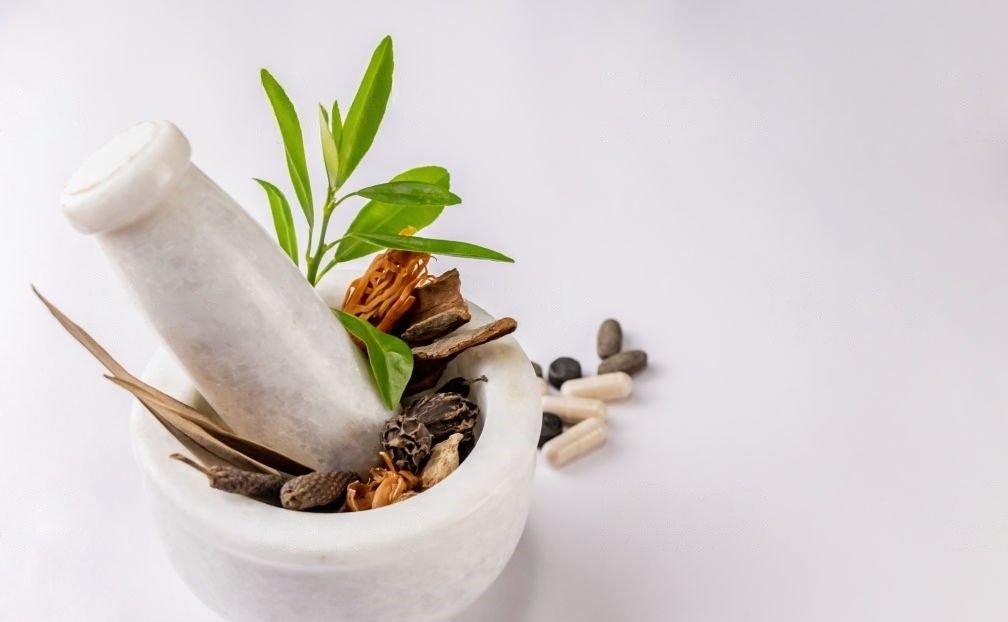Balancing Hormones with Ayurvedic Nutrition: Insights for Indian Women
By giving attention to a variety of vegetables and fruits, incorporating beneficial fats, maintaining stable blood sugar levels, and utilizing herbal assistance, individuals have the ability to effectively impact their hormonal well-being.

Balancing hormones is a crucial aspect of maintaining overall health and well-being, especially for Indian women. Hormones play a pivotal role in various bodily functions, including metabolism, reproduction, mood regulation, and more. Traditional practices like Ayurveda have long emphasized the importance of nutrition in harmonizing hormonal imbalances. This blog delves into the science-backed insights of Ayurvedic nutrition that can aid in balancing hormones for Indian women.
Hormonal Imbalances and Health Implications:
Hormonal imbalances can lead to a range of health issues, from irregular menstrual cycles and mood swings to more severe conditions like polycystic ovary syndrome (PCOS) and thyroid disorders. Scientific studies have highlighted the role of nutrition in influencing hormone production and regulation. A balanced diet with the right nutrients can positively impact hormonal health.
Ayurvedic Approach to Hormonal Balance:
- Incorporating a Variety of Vegetables and Fruits: Ayurveda emphasizes a diet rich in colorful vegetables and fruits. These plant-based foods are abundant in antioxidants, vitamins, and minerals that support hormone production and cellular health. For instance, the inclusion of cruciferous vegetables like broccoli and cauliflower provides compounds that aid in estrogen metabolism and detoxification.
- Choosing Healthy Fats: Healthy fats, such as those found in nuts, seeds, and avocados, are essential for hormone production. Omega-3 fatty acids, in particular, have been linked to reduced inflammation and improved hormone sensitivity. Ayurveda suggests the use of ghee (clarified butter) in cooking, which contains healthy saturated fats that support hormonal balance.
- Balancing Blood Sugar Levels: Fluctuations in blood sugar levels can disrupt hormone production. Ayurvedic nutrition recommends whole grains like quinoa and brown rice, as well as spices like cinnamon and turmeric, which help regulate blood sugar levels. Stable blood sugar levels are crucial for preventing insulin resistance, a condition often associated with hormonal imbalances.
- Herbal Support: Ayurvedic herbs like Ashwagandha and Shatavari have been extensively studied for their potential to balance hormones. Ashwagandha, in particular, has been shown to reduce stress hormone levels and support the adrenal glands, which play a role in hormone production.
Case Studies:
- PCOS Management: Polycystic ovary syndrome is a common hormonal disorder among women. Research suggests that adopting an Ayurvedic diet rich in fiber, whole grains, and anti-inflammatory foods can help manage PCOS symptoms. Additionally, the inclusion of herbs like Fenugreek and Cinnamon has shown promising results in improving insulin sensitivity and hormone balance.
- Menopausal Transition: The menopausal phase often brings hormonal fluctuations. Ayurvedic principles recommend incorporating cooling foods like cucumber, coconut, and mint to alleviate hot flashes and mood swings. These foods help pacify excess heat in the body, a common occurrence during menopause.
SUMMARY
Ayurvedic nutrition offers valuable insights into balancing hormones for Indian women. By focusing on a diverse range of vegetables and fruits, healthy fats, blood sugar regulation, and herbal support, individuals can positively influence hormonal health. Scientific research supports the effectiveness of these Ayurvedic principles in managing conditions like PCOS and navigating the menopausal transition. As we continue to explore the intricate connection between nutrition and hormones, integrating Ayurvedic wisdom into our diets can pave the way for improved overall well-being.
Jayti Shah is a Clinical Nutritionist with a master's degree in Clinical Nutrition and Dietetics. She is a member of the Indian Dietetic Association (IDA). Over the last 9 years, she has helped 400 clients in their clinical and weight loss journeys. She works with SocialBoat as a nutrition consultant.
At SocialBoat, we offer custom diet plans and guided workouts to help you achieve your goals in a 360-degree approach. Our gamified experience ensures that you don’t find workouts boring and we reward you for being consistent with your efforts.

REFERENCES
- Johnson, L. N., & Rains, T. M. (2020). The role of nutrition in hormonal balance. Advances in Nutrition, 11(5), 1066-1079.
- Arentz, S., Smith, C. A., Abbott, J., & Bensoussan, A. (2014). Nutritional supplements and herbal medicines for women with polycystic ovary syndrome; a systematic review and meta-analysis. BMC Complementary and Alternative Medicine, 14(1), 511.
- Mishra, L. C., Singh, B. B., & Dagenais, S. (2000). Scientific basis for the therapeutic use of Withania somnifera (ashwagandha): a review. Alternative Medicine Review, 5(4), 334-346.
